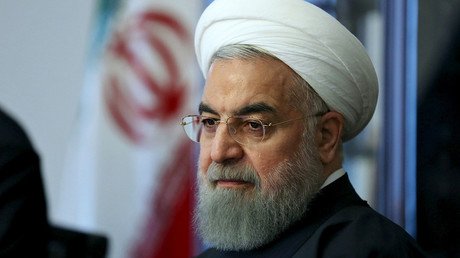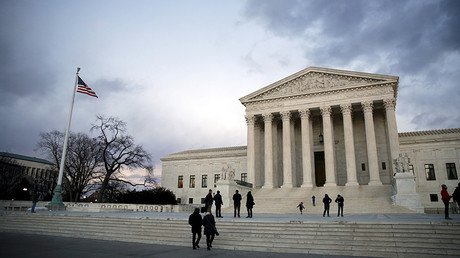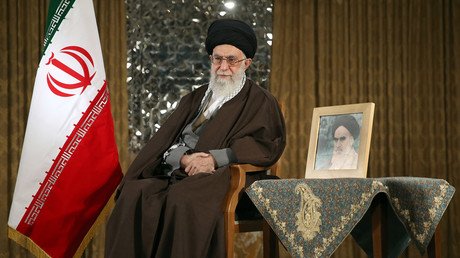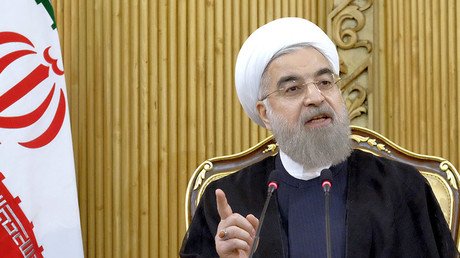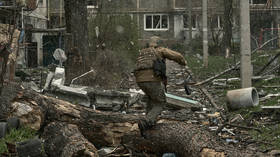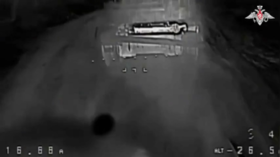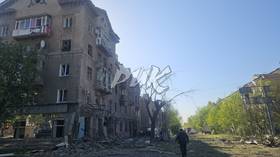‘Distrust brings distrust:’ Iran seeks compensation from US for ‘hostile action’ over past 63 yrs
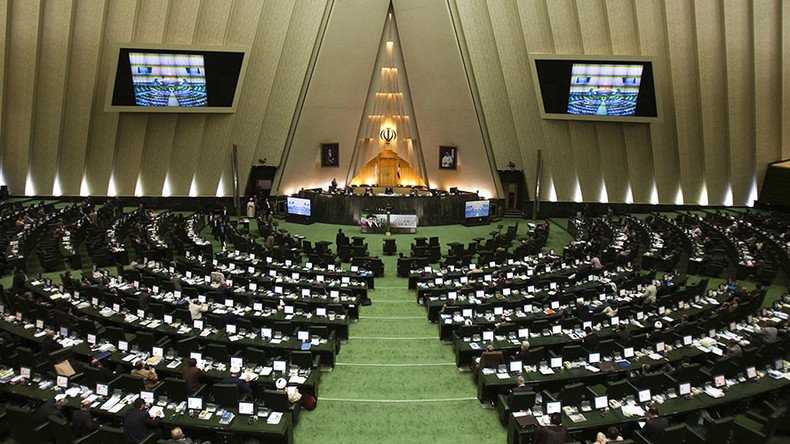
Iran's parliament has passed a bill demanding that the government seek damages from the United States’ “hostile action and crimes” committed since 1953, citing “material or moral damage” caused by Washington’s policy toward Iran.
Among the “hostile actions” mentioned in the bill are the US support for the coup against the democratically elected Prime Minister Mohammad Mossadegh in 1953, aiding Saddam Hussein in the war between Iraq and Iran in the 1980s, destruction of oil platforms in the Persian Gulf in 1988, and espionage against the Islamic Republic as well as confiscation of Iranian external assets, Tehran Times reports.
“The Government has the duty to take the necessary measures seeking compensation for material and moral damages caused by the United States” to Iranians over the past 63 years, the text of the bill says as quoted by AFP.
The bill was passed on Tuesday with 174 votes in favor and seven against while four MPs abstained, Iranian media reported. It is yet to be signed into law by the Guardian Council overseeing the parliament.
The document does not specify the exact sum of potential compensation, although Majid Ansari, the vice president for Parliamentary Affairs, said during the debates in the legislature that “Iranian courts have already ruled that the US pay $50 billion in damages for its hostile actions” against Iran.
The Iranian parliament’s decision comes less than a month after the US Supreme Court ruled to seize about $2 billion of Iran’s frozen funds, to be paid to the survivors and relatives of the victims of a 1983 bombing in Beirut, Lebanon, and a 1996 bombing in Khobar Towers, Saudi Arabia.
The US blamed Iran for organizing these attacks, while the Islamic Republic has always denied its involvement. The money confiscated under the April 20 ruling belonged to the Central Bank of Iran and was previously frozen under the US sanctions.
The move caused a wave of indignation among Iranian leaders that regarded it as absolutely unjust. Iran’s President Hassan Rouhani called the ruling a “continuation of hostilities against Iran” and a “flagrant theft and a legal disgrace.”
“The government will never allow for the money that belongs to the Iranian nation be easily gobbled up by the Americans,” Rouhani said in April, as quoted by the Press TV. Tehran also denounced the seizure of the frozen assets as “highway robbery.”
On May 16, a special working group formed at Rouhani’s order issued a statement saying that the US judicial system had “violated the principle of state immunity” with this ruling, Al Arabiya reports.
‘Opportunity and threat’
Many Iranian MPs also expressed their frustration and indignation over the US ruling, calling it unjust and adding that the passing of the bill demanding damages from the United States was a “natural reaction to [the US] deeds.”
“The US Supreme Court’s decision… was illegal. It shows lack of goodwill on the part of the US government. Distrust brings distrust. What we ratified today is both an opportunity and a threat,” Nozar Shafeie, the national security spokesman of the parliament told RT, stressing that “frictions” can sometimes force countries to enter into dialogue thus providing new opportunities. However, this situation can “build a wall of mistrust,” he added.
“It is a lie to accuse Iran of supporting terrorism. It is the US government, which designs, aids and abets terrorism throughout the world… The ongoing proxy wars are all of a US design…” Iranian MP Ahmad Salek told RT, commenting on the situation.
His words were echoed by another MP, Qassem Ahmad Lashaki, who said that “the US keeps playing games as time goes by” and has provoked the ongoing crisis in the Middle East as well as “created” Islamic State (IS, formerly ISIS/ISIL).
The MPs also said that the US just seeks new ways of doing damage to Iran as sanctions imposed because of Tehran’s nuclear program are being lifted after the Islamic Republic fulfilled its part of the landmark nuclear deal with the world powers, including the US, in January.
“After the nuclear deal the US had no right to confiscate two billion dollars of Iranian assets. So we had to fight back. We also wanted to defend our people’s rights. The US government has caused huge financial damages to us over the past 50 years,” Ahmad Salek told RT, adding that “the new law obligates the government to seek compensation for all the US crimes.”
In late March, Iran’s leader Ayatollah Ali Khamenei already accused the US for the difficulties his country faces in the international financial system after the lifting of international sanctions by saying that Washington removed sanctions only “on paper.”
In the meantime, outspoken legislator Hamid Rasaei has proposed an amendment to the bill that would allow Iran to “seize US assets” passing through the Strait of Hormuz in response to the US ruling.
“If the US should seek to misappropriate the Iranian nation’s assets, the strait must be turned into an insecure place for them and US vessels banned from passing through it,” he said as quoted by Press TV.
Justice Minister Mostafa Pour-Mohammadi said that Iran’s Supreme National Security Council approved taking the case of Iran’s frozen external assets to the International Court of Justice based in The Hague.
